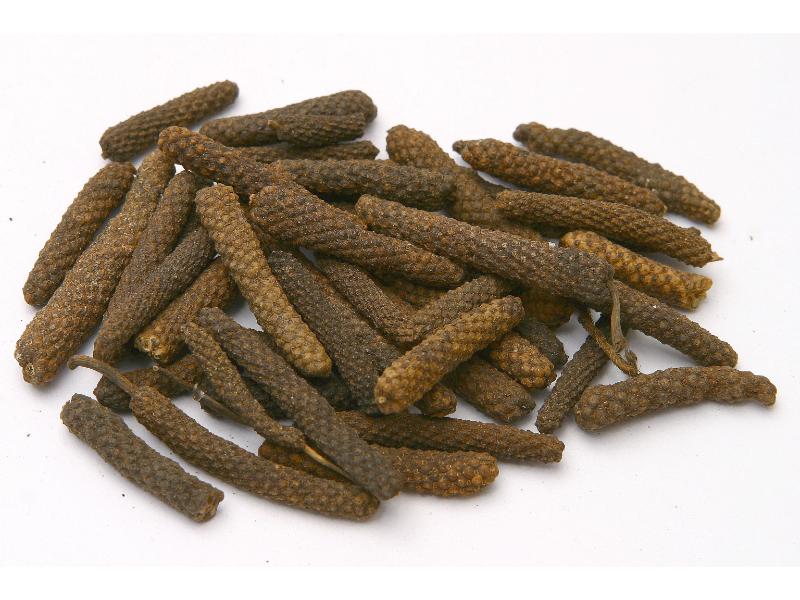Search in medicinals
Piperis Longi Fructus
Long pepper1
荜茇 〔蓽茇〕 bì bō

Alternate Chinese names: 荜拨梨 bì bō lí; 毕拨 bì bō; 荜拨 bì bō
Kingdom: Plant
Origin in PRC Pharmacopoeia: Piper longum L. (PRC Pharmacopoeia)
Origin in unofficial sources: Piper longum L.
Use: Medicinal and alimentary
Category: Interior-warming agents
Properties: Acrid; hot.
Channel entry: Spleen and large intestine channels.
Actions and indications:
- Warms the center and disperses cold: Stomach cold with cold pain in the stomach duct and abdomen
vomiting and retching , and diarrhea. - Additional uses: Bì bō may be placed into dental cavities to relieve the pain from tooth decay.
Dosage and method: Oral: 3–6g in decoctions; also used externally.
Warnings: Contraindicated in repletion heat, depressed fire, and yīn vacuity with effulgent fire.
Product description: This is a slightly curved cylindrical fruit spike, 2–5 cm long, and 0.5–0.8 cm in diameter, usually with the main fruit stalk missing. It is composed of many small round fruits neatly arranged to form a diagonal crisscross pattern. The individual seeds, each covered with a bract, are 1 mm in diameter. They break open with difficulty to expose a reddish interior, with white endosperm. This fruit has an unusual aroma and a hot acrid taste.
Quality: Large, hard fruits with a strong smell are the best.
Production area: Yúnnán and Guǎngdōng, Indonesia, Philippines, and Vietnam.
Etymology: The name bì bō 荜茇 is a corruption of the Indian pippali.
Back to search result Previous Next